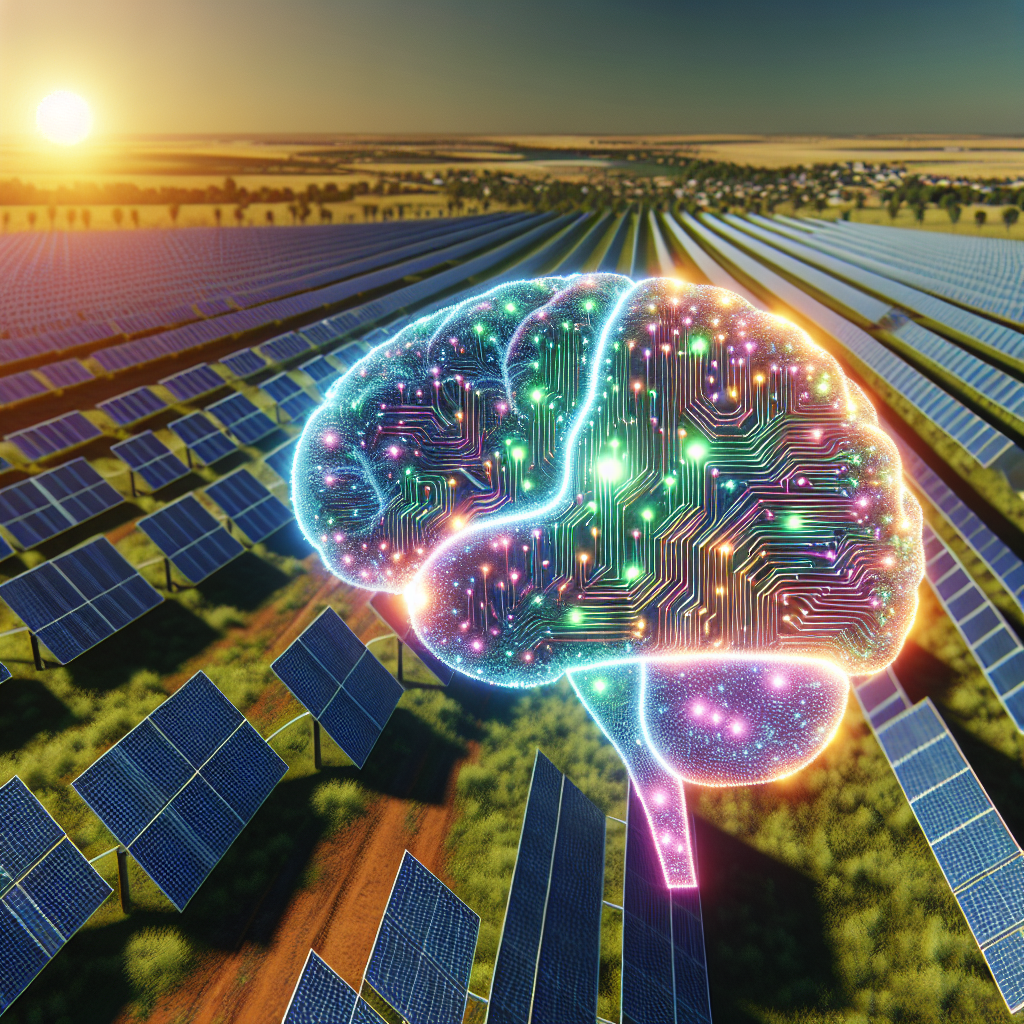The world is rapidly embracing renewable energy sources to combat climate change and reduce dependence on fossil fuels. Solar energy is one of the most abundant and widely available sources of renewable energy, but its efficiency has been limited by factors such as weather conditions, shading, and the orientation of solar panels. However, with the advent of artificial intelligence (AI)-driven technologies, the potential for enhancing solar energy harvesting has never been greater.
AI technologies have the ability to optimize solar energy systems in real-time, improving efficiency and maximizing energy output. By incorporating AI algorithms into solar energy systems, operators can monitor and adjust energy production based on factors such as weather patterns, shading, and energy demand. This level of control and precision can significantly increase the overall efficiency of solar energy systems, making them more reliable and cost-effective.
One of the key ways AI can enhance solar energy harvesting is through predictive analytics. By analyzing historical data and real-time inputs, AI algorithms can predict energy production and consumption patterns, allowing operators to adjust energy output accordingly. This can help reduce energy waste and ensure that energy is being generated and used efficiently.
Another way AI can improve solar energy harvesting is through autonomous control systems. These systems can automatically adjust the orientation of solar panels, track the sun’s position, and optimize energy production based on real-time inputs. This level of automation can save time and resources for operators, while also maximizing energy output.
AI can also help optimize maintenance schedules for solar energy systems. By analyzing data on system performance and identifying potential issues before they occur, AI algorithms can help operators schedule maintenance and repairs more efficiently, reducing downtime and ensuring that systems are operating at peak performance.
Overall, AI-driven technologies have the potential to revolutionize the solar energy industry by improving efficiency, reducing costs, and increasing reliability. As the world continues to transition to renewable energy sources, AI will play a crucial role in maximizing the potential of solar energy harvesting.
FAQs:
Q: How does AI technology improve solar energy harvesting?
A: AI technology can improve solar energy harvesting by optimizing energy production in real-time, predicting energy production and consumption patterns, automating control systems, and optimizing maintenance schedules.
Q: What are the benefits of using AI-driven technologies in solar energy systems?
A: The benefits of using AI-driven technologies in solar energy systems include increased efficiency, reduced costs, improved reliability, and optimized energy production.
Q: How can AI help maximize energy output from solar panels?
A: AI can help maximize energy output from solar panels by adjusting the orientation of panels, tracking the sun’s position, and optimizing energy production based on real-time inputs.
Q: Are AI-driven technologies expensive to implement in solar energy systems?
A: While the initial costs of implementing AI-driven technologies in solar energy systems may be higher, the long-term benefits in terms of increased efficiency and reduced costs can outweigh the initial investment.
Q: How can operators benefit from using AI in solar energy systems?
A: Operators can benefit from using AI in solar energy systems by saving time and resources, maximizing energy output, reducing maintenance costs, and improving overall system performance.

